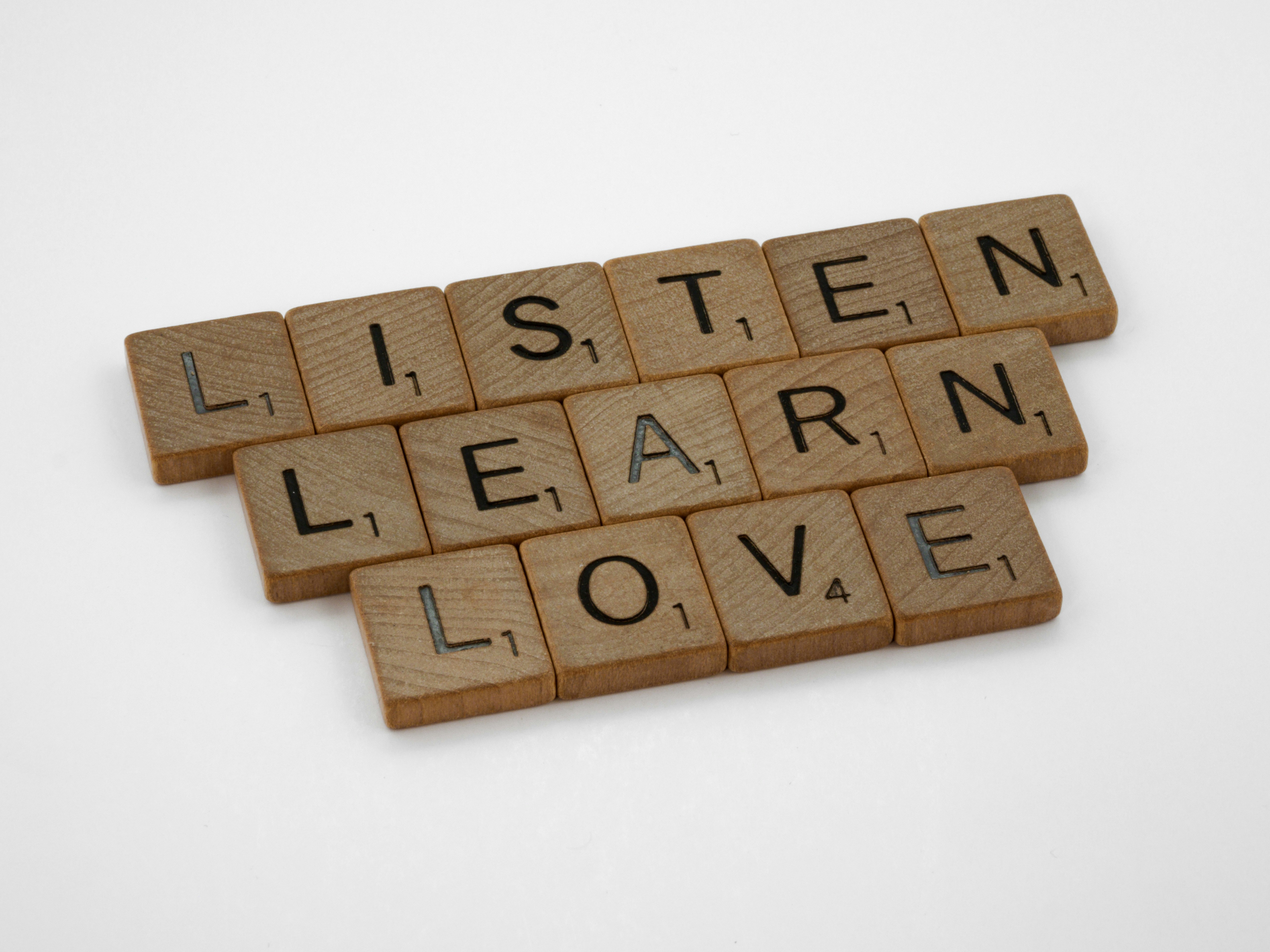The Love Makeover Blog
Let's explore and grow together.

Dating and relationships over 40
Rituals -Routines -Self-Care
manifestation

Attachment Styles: Why they can help change your dating and relationship success
“It's like playing a Monopoly game with someone who has completely different rules and strategies than you. It might start okay. But after a while, it descends into chaos, and before long, one of you chucks the board in the air and storms off.” - Sarah Duff
Here's why learning about attachment styles could be a turning point in your dating and relationship success.
Attachmentstyles Dating Datingcoach Findinglove Personal Growth Relationshipcoach Relationships Selflove
Can we agree that relationships, love or just pure lust can be amazing but suck simultaneously?
Sometimes, they feel easy and joyful and bring magic into our lives. And other times, they cause stress, pain, confusion, and frankly make you want to poke your eyes out!
But either way, the fact is this.
Relationships are essential to living a happy, fulfilled and healthy life. Relationships are going nowhere unless you're intent on living in a hermit's cave till you die. And even if you opted to be a hermit, you're still in a relationship with yourself!
So, relationships are here to stay, so it's essential to learn how to navigate them in the best way possible.
And how you do this is by...
1. Becoming aware of who you are in relationships
2. Exploring why you behave the way you do in relationships
3. Addressing and changing patterns that are unsupportive to being in a healthy relationship.
🧠Your patterns
Which of these do you identify with:
Are you always insecure?
Do you feel anxious all the time?
Find yourself flying off the handle a lot?
Do you find yourself stuck repeating the same shit?
What do you notice about your thought patterns?
What do you avoid?
What do you seek out?
Do you flee or cling when the going gets tough?
Knowing your patterns (and taking responsibility for them) is powerful. You can't change what you don't know.
And in my experience as a woman who has been in relationships. And as a dating and relationship coach. I know that a lack of awareness of your relational self is at the root of repeated undesirable cycles.
It can lead to the breakdown of a relationship.
Or...
The relationship becomes a toxic container where neither party is happy or fulfilled. But neither knows what to do about it, so you both exist, hoping things might change one day.
And this is where I come in.
I intend to share what I've learned /am still learning about relationships.
To share my personal experiences. What I've learnt from my professional courses and clients I've worked with.
I'm not a therapist.
I'm simply a woman who didn't understand anything about healthy relationships (romantic or otherwise). Who has started to figure stuff out in her 40s and is now in a healthy relationship.
I want to help you on your journey to find love. So, in this blog, we're exploring attachment styles -- an important topic to have awareness of.
Why?
Relationships can be tough to navigate when we have different attachment tendencies to that of our partner, and we're unaware of those.
It's like playing a Monopoly game with someone who has completely different rules and strategies than you. It might start okay. But after a while, it descends into chaos, and before long, one of you chucks the board in the air and storms off.
It's a big topic, and this is an intro to the attachment styles.So grab a cuppa, get comfy and let's dive in.
🗣️Let's have some straight talk about what attachment styles are
WTF is an attachment style?
My introduction to attachment styles came from the book aptly titled attached, based on the attachment theory work of John Bowlby and Mary Ainsworth.
According to the attachment theory, we each have our preferred "attachment style." And this dictates how we emotionally bond and connect to other humans. And, therefore, how we behave in relationships.
✅Where and when do attachment styles come from?
If you're an old hand in the personal development/self-help world, this answer will be of no shock.
But if you're new, then it may come as a surprise.
The answer is 👏🏻C.H.I.L.D.H.O.O.D.👏🏻
Yep, these attachment styles are often (but not all) the result of our childhood experiences.
More specifically, they result from how our caregivers related to us when we were young. And what we learnt about independence, dependence, receiving and giving love/support/affection.
Now, an important reminder. Doing the work on ourselves and examining the root of our problems is about helping us to move forward. It is not about pointing fingers and blaming our parents/caregivers for what they did or didn't do.
They were parenting based on their emotional and mental health to the best of their ability and the parenting they received in their childhood.
Inner healing is about empowering ourselves to break generational patterns and allow ourselves to thrive. It's okay to feel angry; feeling, processing, and releasing are crucial parts of the process.
Living your life stuck in the blame game won't change what happened but will keep you stuck. Finding compassion & forgiveness will help you move forward.
Something else to know
We don't only develop attachment styles from our caregivers.
Experiences such as:
Bullying
Being an immigrant
Losing a parent
Being a person of colour living in a white-centric community, where there were few examples of them or their origin.
And we can have one attachment style as a kid. But then, through experiences, another can emerge, so context is also essential.
"A person can have had a secure attachment during childhood; however, betrayals and infidelity in adulthood can lead to an insecure attachment," - Mancao.
So now we've covered the WTF and where they came from. It's time to dive into the different types.
📚The 4 types of attachment styles
Before we dive in, I want to clarify a few things:
1. It's 100% possible to be a combination of all 4 styles. We're fluid beings; nothing is set in stone.
2. You can heal and become the attachment style that's the most "desirable." (spoiler alert: Secure) But you know even the securely attached person will likely have moments of not being so secure. IT'S CALLED BEING A HUMAN.
3. There is no need to feel shame around the style (s) you identify with the most. It does NOT mean there is anything wrong with you. They are things that just are.
The point of understanding more is to ensure you're not sabotaging the relationships you're in. And to empower you to change the trajectory of your future love and relationships.
1️⃣ Secure attachment - pretty much what it says on the tin!
A person with a more secure attachment style can more naturally form secure, loving relationships with others.
A securely attached person finds it easier to trust others, love and accept love.
They are comfortable with complete intimacy and are more resilient to loss. AKA they are less likely to be up at 3 a.m. after a break-up stalking their ex on socials.
And overall, they find it easier to attract and enjoy long-term, stable relationships.
Looking back over my life, I can say this. I scared off many a secure man with my high-level insecurities. And, at times, downright crazy behaviour!
2️⃣Anxious attachment
The anxious attachment tendencies exist because they are wired with the fear of abandonment, rejection or inadequacy. So, this is a very painful existence.
In relationships, this can look like:
Seeking reassurance and validation
Trying to rush things so you can create a guarantee
Being overly available and catering to the other person's needs
Being agreeable and being a pretzel to avoid rejection
Overthinking and over-analysing.
In my previous relationships, this was me. And here's what it looked like.
I would suppress all my needs and do everything to please the other person.
Why?
Because I didn't trust that I was enough for them, I had to find some way to prove my worth. And pleasing was a familiar way for me to do this.
I would give up my independence and become clingy because that awful anxious feeling of thinking the person would leave me was so strong.
If they went out for a night, my mind would torture me with stories about what he was up to. And if he didn't text me back immediately, I would go into a state of panic.
Back then, when I was scared or angry, my wounded reaction was to try and pull the person closer by taking action from a place of desperation, which never ended well. And maybe yours is the same, or it's shouting, screaming or accusing. Either way, if left unaddressed, these wounded reactions can harm a relationship.
So, can you see how important getting to your relationship self is? It's completely transformed my love life, that's for sure!
Something else that can happen is that the anxious attachment can be a relationship hopper. They hop from relationship to relationship because being independent feels very uncomfortable. They need constant reassurance from outside of themselves to feel worthy, enough and loveable.
And finally.
The anxious attachment can be a great connector (which has many positives) because they thrive on reassurance, which has many positives, but can also mean they have a lot of friends but aren't truly connected to any of them.
I did this. I would have so many "friends". All of whom I felt were better than me (another anxious attachment tendency), and I only toe-dipped into my relationship with them.
I dipped my toe in just enough to get reassurance and approval but avoided getting too close, so I never had to open up and let them see the real me because that felt too vulnerable.
3️⃣ The Avoidant attachment
Oh, hello, the majority of the men I've ever dated!
The avoiders tend to be uncomfortable with intimacy. They prefer to be independent and self-reliant, and the fear of losing this is genuine.
This shows up as:
Only wanting to date casually.
Being vague about plans.
Avoiding conversations about anything deep and meaningful relating to the relationship.
A tendency to have very little interest in learning anything about you.
They can come across as being emotionally closed off and difficult to get to know. They're afraid of commitment so they don't deeply invest in relationships. So when a relationship ends, get over it without too much time spent dwelling on the loss. I remember so many times when something would end with someone, and the guy would have moved on in minutes, and six months later, I was still obsessing and feeling sick about it.
👉🏻The combination tendencies
You can be a combination of all of the attachment styles. Reflecting, I can see times when I operated more like the avoidant.
For example; when I met someone secure and stable who wanted to know about me, to create an emotional, intimate connection, I wasn't comfortable with that, so I would be avoidant and push them away.
Why?
Having someone be available and show up consistently felt unfamiliar, so it freaked me out. And this freak out often resulted in me cutting the guy off cold. No explanation, nothing. I'm not proud of this, but I forgive myself because I know it was coming from a wounded place.
Can you see how crazy this stuff is and how much it could impact your dating and relationship success?
And that brings us to the final style
4️⃣ The fearful-avoidant
Out of all the styles, this is the least common. And in some cases, the one that may have the most significant need for professional help.
Who is the fearful-avoidant? (also known as the disorganised)
They might come across as being hot and cold.
Loving but distrusting.
Emotionally available but afraid to commit.
So, quite the swaying existence.
The Fearful Avoidant is often warm and charming when you meet them. They can make you feel you've known them for years. But then up comes a wall.
They will pull away and become disconnected when they feel triggered or overly vulnerable. It's also not uncommon for the Fearful Avoidant to have strong fluctuations in their emotional state.
When I first found attachment styles, I struggled a bit because I identified strongly with aspects of both the anxious and the avoidant.
But context always matters, and we can always be more than one thing. I made peace that I was a bit of all. Learning about attachment styles provides some helpful insights that help us understand how to navigate dating and relationships more easily.
But your attachment style is only one part of the story. Relationships and humans are complex and therefore, no one thing is ever responsible for everything.
An important reminder about personal development labels.
When doing personal development work and looking at concepts, they often come with labels.
But I want you to remember the "inner work", "personal growth work", "healing work".However, you like to frame it, is about helping us to have more awareness, let go of baggage and understand ourselves better.
It's NOT about attaching labels to ourselves left, right and centre.
So please avoid getting too attached to labels. Use the information to evolve, not to shackle you down to the idea that you can't change.
Thank you for reading. Here's to you and more successful relationships
Sarah ❤️❤️
Feel free to email any questions here @thrivewithduff@gmail.com
How to heal and shift your attachment style. Here is one of the millions of attachment tests you can take to gain insight into yours
Pin this baby for later xx
Want value packed love Notes to your inbox?
sign up for my newsletter : Sarah's Love Lessons
The monthly newsletter that shines like gold in your inbox!!
Every month I share the sh*t you need know to decode love, relationships and the tricky landscape of modern dating over 40,
© Copyright 2023 Thrive With Duff
